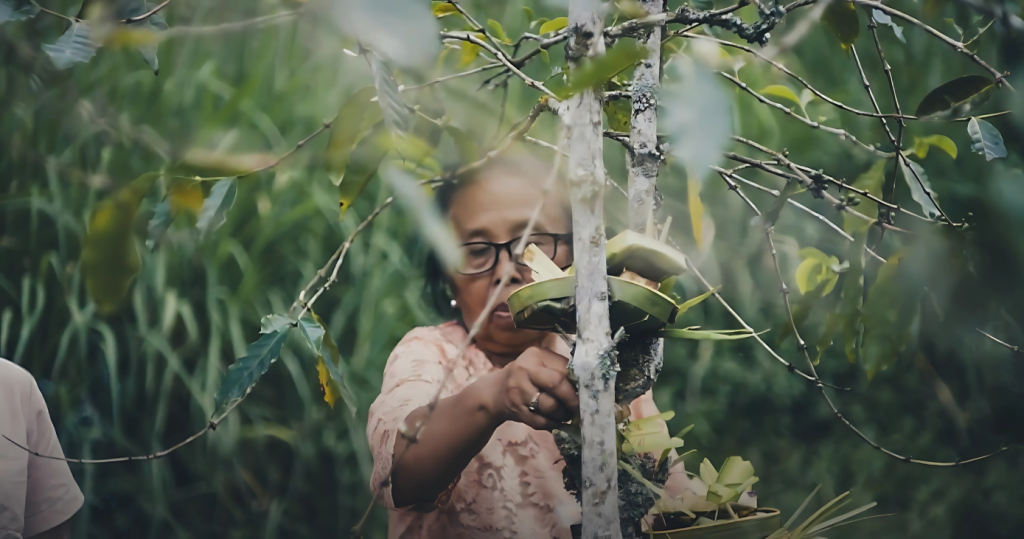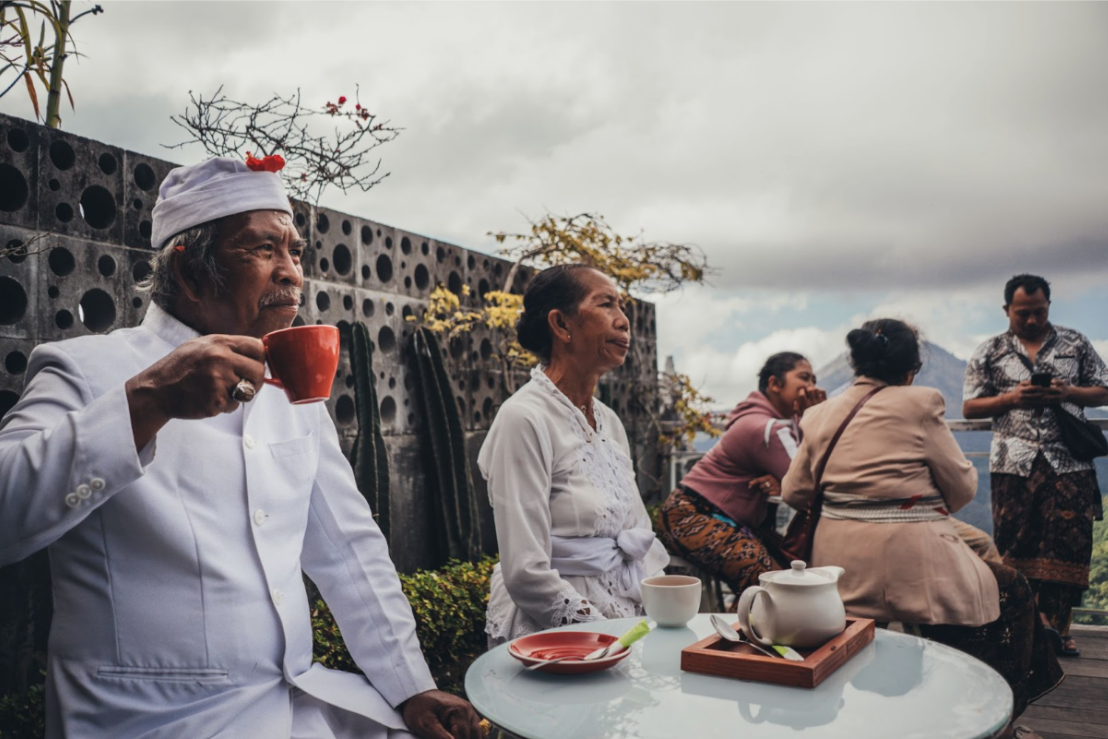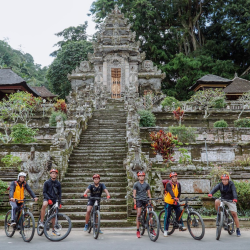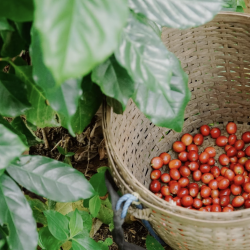Coffee in Indonesia has been cultivated since the 1800s, thriving across regions like Java, Sumatra, and Papua where vast lands nurture endless coffee farms. Bali, however, tells a different story. Here, coffee farms are smaller, scattered across villages and highlands—but what Bali lacks in size, it makes up for in soul.
Bali’s coffee culture runs deep, woven into daily life, social gatherings, and even spiritual offerings. From the crisp highlands of Kintamani producing world-renowned Arabica coffee, to the lowland farms that grow hearty Robusta beans, coffee in Bali is more than a drink—it is a way of life, a bridge between people, nature, and the divine.
Coffee and Community: A Social Medium in Bali

Picture 1. People Gathering at Coffee Shop
In Bali, coffee is not just consumed; it is shared. Every month, Balinese families and villages gather for ceremonies—be it weddings, temple festivals, or community meetings. At the heart of these gatherings, one thing is always present: a pot of freshly brewed coffee.
Serving coffee is more than hospitality—it is a gesture of gratitude. To offer a guest a cup of coffee is to say, “Thank you for coming. You are welcome here.” Whether it’s day or night, no Balinese gathering feels complete without it.
Today, coffee culture in Bali has also evolved with the younger generation. In cities like Denpasar, trendy coffee shops bloom on every corner, serving everything from palm sugar lattes (kopi susu gula aren) to cold brews. These cafés have become modern meeting points—where students chase deadlines, creatives find inspiration, and friendships flourish over cups of coffee. Here, coffee has transformed from a traditional offering to a lifestyle symbol of connection and communication.
Coffee as a Spiritual Offering

Picture 2. Banten Kopi or Coffee Offering
Credit: KOMPAS
What truly sets Balinese coffee culture apart is its role in spirituality. For the Balinese Hindu community, life is guided by respect—for people, for nature, and for God. One of the most heartfelt ways this respect is shown is through daily offerings.
Among the many offerings, one stands out: banten kopi, or coffee offering. At dawn, before breakfast, families prepare a small cup of black coffee, a little rice or bread, and place it at the temple. This simple act of devotion is believed to invite blessings, protection, and harmony for the day ahead.
In this way, coffee becomes more than a beverage—it becomes a bridge between humans and the divine, a symbol of gratitude and connection to the universe.
Respecting the Coffee Plant

Picture 3. Balinese Woman Serve Offerings at A Coffee Tree
The reverence for coffee extends beyond the cup to the plant itself. Every six months, Balinese Hindus celebrate Tumpek Wariga, a sacred day dedicated to honoring plants and natural resources.
In Kintamani, coffee farmers gather to hold ceremonies at their plantations, offering prayers and gratitude for the harvest. These rituals are not only spiritual but also a reminder of the deep respect the Balinese hold for the land—a belief that prosperity comes from balance with nature.
Final Thoughts
In Bali, coffee is never “just coffee.” It is a vessel of stories, a thread connecting community, a sacred offering, and a living tradition passed down through generations.
So the next time you sip your morning brew—whether it’s a strong Robusta or a smooth Kintamani Arabica—pause for a moment. Remember that in Bali, each cup is more than caffeine. It is connection, culture, and gratitude poured into every drop.



